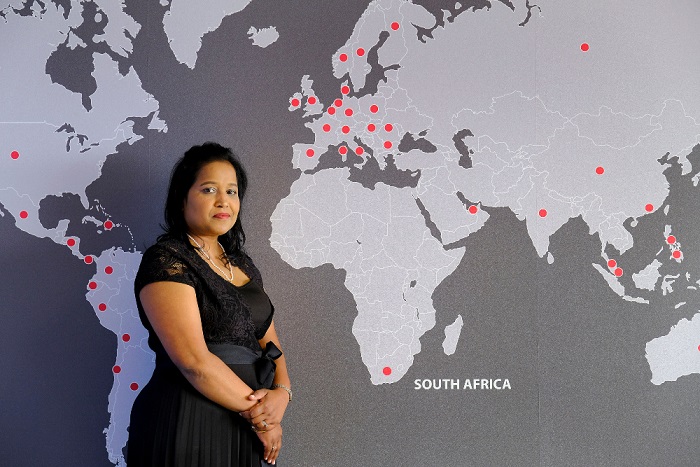
SoftwareOne
Rosebank, Johannesburg.
South Africa
22 April 2021
Photograph: John Hogg
Everyone, from software developers to school children, watched in awe as the world rapidly shifted online during the past two years. In fact, COVID has accelerated digital transformation by seven years, says Marilyn Moodley, Country Leader for South Africa and West, East, Central Africa at SoftwareONE. “This has changed, and will continue to shape, the world as we know it. Though the information technology sector creates digital transformation, these trends are informed by consumer demands.”
Here are seven ways these demands will influence the sector in the near future:
Continuous virtualisation
Also referred to as the metaverse, continuous virtualisation might sound like garble from a science fiction film. But its real-world applications are diverse, and already impact consumers in their everyday lives. “Virtualisation is not only confined to artificial intelligence and robotics. When someone talks to Alexa, they’re interacting with the virtual world. When you switch on your washing machine from your smart phone, that’s virtualisation. Such everyday applications are in demand and will continue to flourish,” says Moodley.
Hyper automation
Along the same vein, hyper automation will become more prevalent. “Again, this not only refers to robotics and tech automation, but also commercial automation for the everyday consumer. The process of buying technology, the tech and digital supply chain, is becoming more democratised. Consumers around the world want to digitally buy services from any vendor in any country, quickly and easily – and as this demand grows, so does automation of the process,” says Moodley.
Balancing the cloud
The proverbial cloud floodgates have opened, and consumers are adopting it at a rapid pace. But demand is quickly outgrowing governance, and many users are at a loss when it comes to levering their cloud spend. By some estimates, around 30% of cloud spend is wasted, says Moodley. “Big corporates are creating fin-ops departments tasked with looking after their cloud spend, as widening choice, complexity of procurement as well as complexity of migration increases. At SoftwareONE, we’re placing a lot of focus on supporting customers through this transformation, providing transparency and predictability to reduce software and cloud spend. And we predict more organisations will lean on us as a partner as we aim to increase education about cloud use and financing.”
Software subscription models
Subscription-based services are increasing in every sphere – streaming services outpacing traditional television being just one example, says Moodley. “Consumers are now used to this flexibility and expect subscription-based models in IT too. Licenced models are making way for subscription models where users only pay for what they consume.”
Increased security
Ransomware has become big business. Gone are the days of the anonymous hacker sitting in a far-off bedroom; today’s hackers are professionals, sitting in offices and earning a salary for their efforts. Moodley warns that smaller and smaller companies are being targeted, and they suffer the most. “Large corporations can often absorb the losses, but a ransomware attack on a small and medium enterprise can close their doors permanently. Businesses, small and large, are investing in better IT security – and these solutions are also becoming bigger and better to stay ahead of criminals.”
Sustainable transformation
For almost every problem these days, there’s a fantastic tech solution. But, of course, not everyone needs, or can afford, a shiny new convertible – for some, a robust pickup makes more sense. Moodley explains: “Consumers are now aiming for that sweet spot between technological and commercial transformation, so that both are sustainable. There’s no sense in buying the best technological upgrades around if they’ll only start reaping dividends five years down the line. Consumers are aiming to get more value for their money, investing in tech that can make a truly measurable difference in their business.”
Cognitive consumption
When Google announced that it had offset all its previous carbon emissions last year, other tech companies sat upright and took notice. And transparency around environmental sustainability will become essential in the sector, says Moodley. “Consumers are more knowledgeable about sustainability and are actively engaging with green brands over their competitors. SoftwareONE’s future growth strategy is supported by the enablers of innovation, people, culture and sustainability, and we expect many suppliers in the sector will follow suit.”
